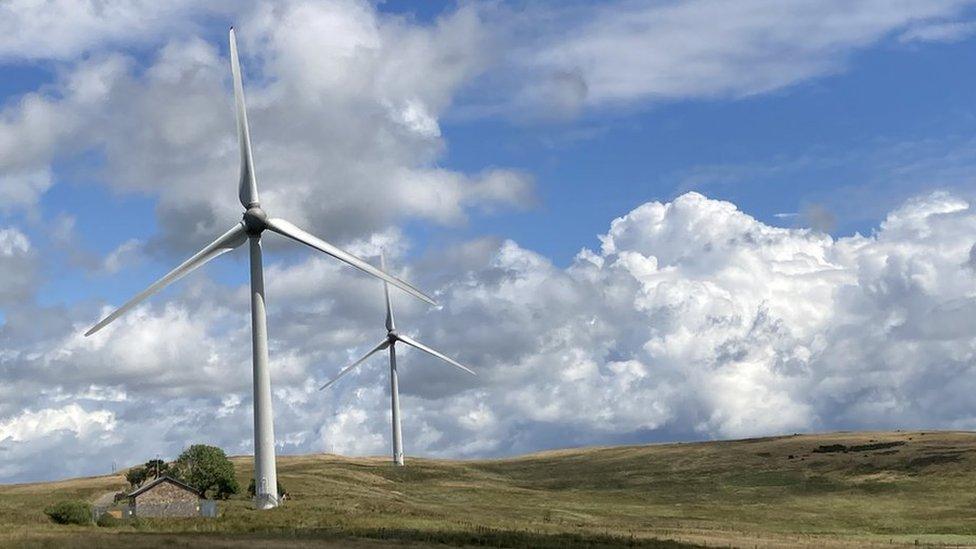Grant Shapps denies Tory split over onshore wind farms
- Published
- comments
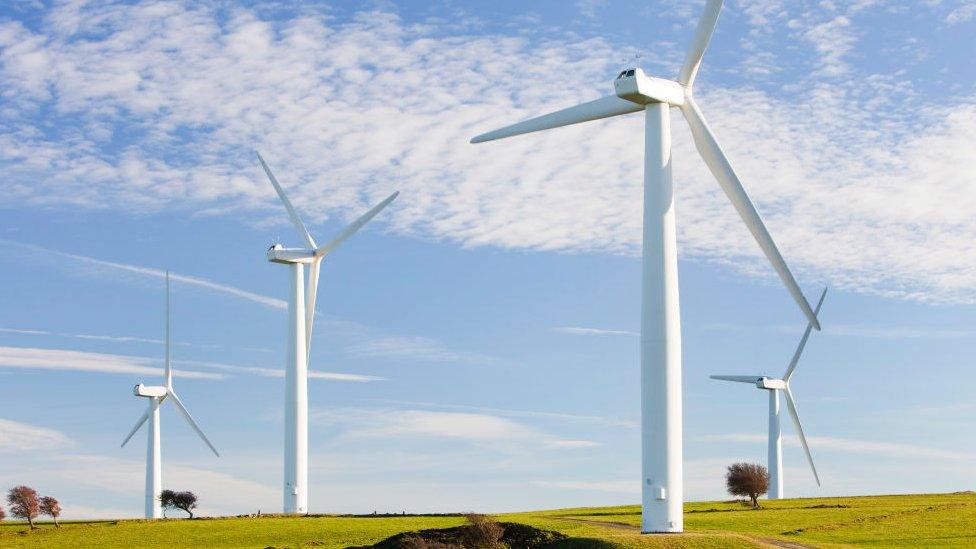
Business Secretary Grant Shapps has denied there is a split in the Tory Party over onshore wind farms.
In the summer leadership contest, Rishi Sunak had pledged to keep the effective ban on new onshore wind in England.
Former prime ministers Boris Johnson and Liz Truss are among those backing an attempt to overturn this ban.
But Mr Shapps said he did not see this as a "rebellion" because everyone agreed there should be local consent for new wind turbines.
He told BBC Radio 4's Today programme there was "definitely a contribution to be made by onshore wind", although there should be local support for any new turbines and ideally communities should benefit from them.
"If you can do that then I have no principled objection," he added.
Onshore wind is a cheap, renewable source of energy, but opponents say turbines are noisy and an eyesore.
Simon Clarke, who was a cabinet minister under Ms Truss, has tabled an amendment to the Levelling Up Bill that would overturn a planning clampdown which has resulted in an effective ban on new onshore wind turbines since 2015.
He said the move would allow new turbines where there is local consent.
Around 30 Tory MPs are believed to have added their names to the amendment, including outgoing COP26 President Alok Sharma and former Conservative Party chairman Sir Jake Berry.
Labour has said it would support the amendment, increasing the chances of a government defeat.
Levelling Up Secretary Michael Gove has also told allies he supports ending the ban on onshore wind farms, according to the Daily Telegraph, external.
But Mr Shapps denied reports of a cabinet split over the issue, saying "we all want there to be local consent".
He said he believed the amendment would give local communities the "final say" on new wind turbines in their area - and that this was in line with his own position and that of the prime minister.
Asked whether Mr Sunak would support the amendment, Mr Shapps said he did not think the prime minister had looked through all the planning ramifications yet, but he added: "We've been very clear, regardless, local communities need to both support and ideally see the benefits from this."

Where did previous Tory leaders stand on onshore wind?
In 2015, David Cameron introduced a planning clampdown on onshore wind, which was continued under his successor Theresa May
Boris Johnson maintained the restrictions. In May, his energy strategy ruled out "wholesale changes" to the planning system for onshore wind but said the government would consult a "limited number of supportive communities" about allowing new turbines in exchange for lower energy bills
During her brief premiership, Liz Truss announced her intention to align onshore wind approval policy with other infrastructure

The prime minister's official spokesman was later asked if Mr Sunak was open to relaxing planning restrictions and said: "I'm not aware of any imminent change on that front."
Pressed on whether Mr Shapps was signalling an imminent U-turn, the spokesman said: "I'm sure he's pointing to the rules that are already in place, to allow for consultation."
But Green MP Caroline Lucas accused Mr Sunak of "another screeching U-turn", saying the prime minister had "failed time after time to show the climate leadership our country needs and is having to be dragged in the right direction".
During his first, unsuccessful, campaign to be Conservative leader over the summer, Mr Sunak had promised to maintain the ban on new onshore wind turbines in England.
Asked about the ban earlier this month, Mr Sunak told MPs the government wanted to focus on offshore rather than onshore wind.
Labour leader Sir Keir Starmer has said his party would lift the ban on onshore wind if it wins power at the next general election, which is expected to take place in 2024.
Labour's proposed planning changes include removing a provision that allows a single person's objection to stop an application.
Moves to overturn the ban are the latest challenge faced by Mr Sunak over planning measures in the Levelling-Up Bill.
The bill's journey through Parliament has already been delayed by a Tory backbench rebellion over housebuilding targets.
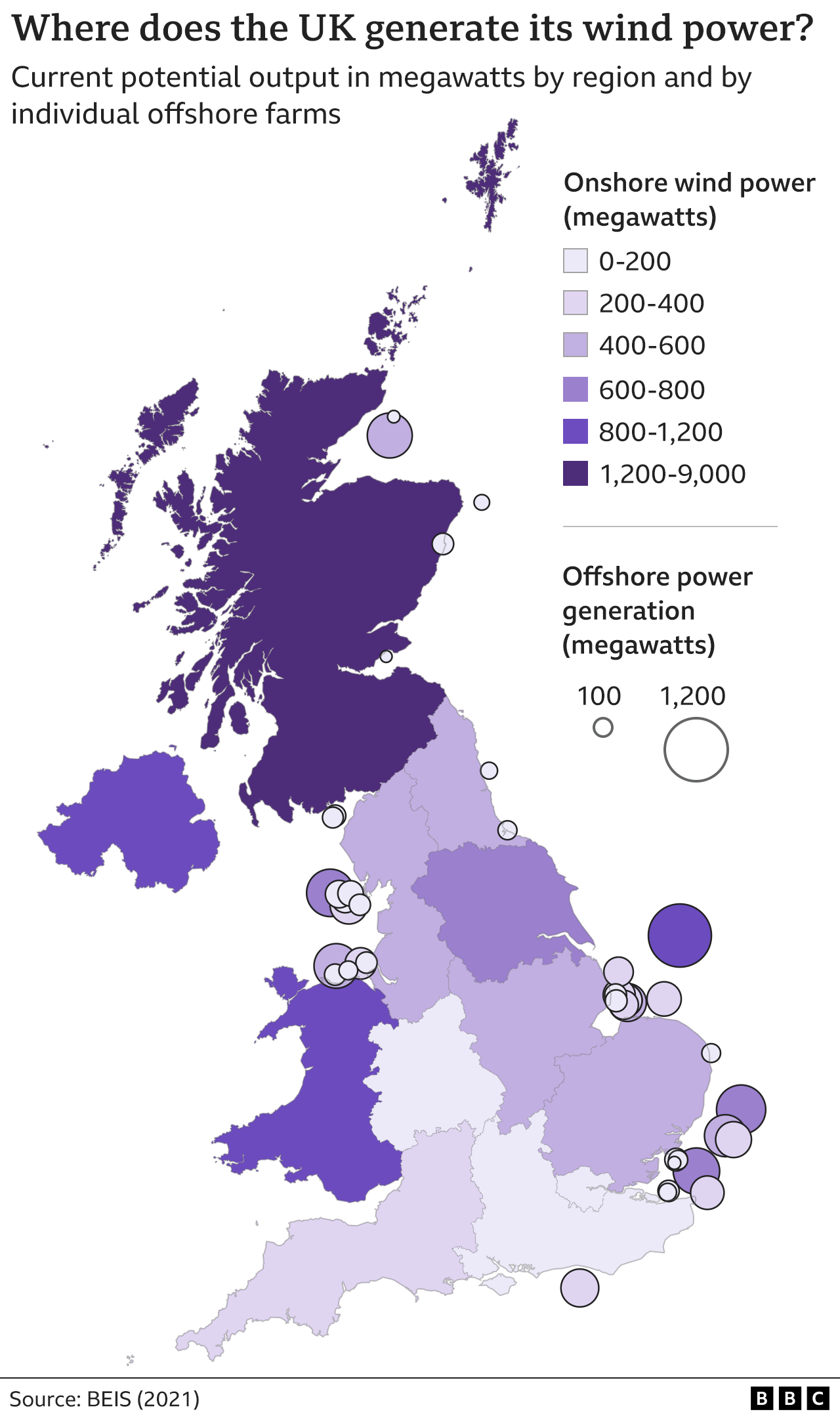
- Published24 November 2022
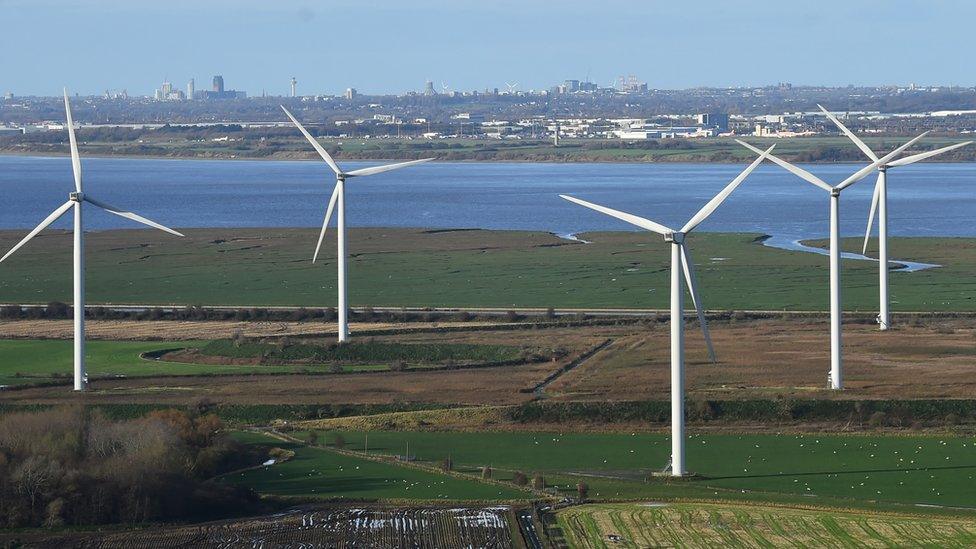
- Published10 November 2022
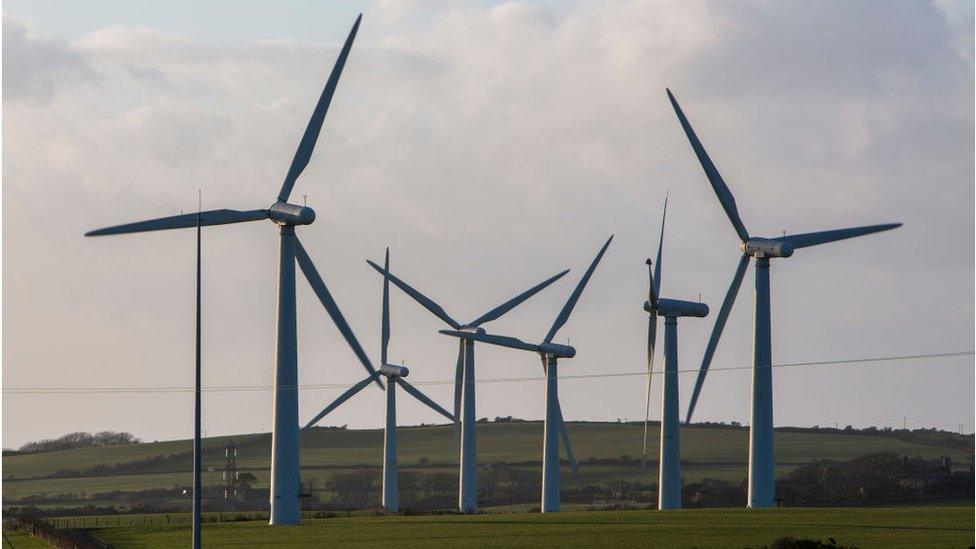
- Published28 November 2022
